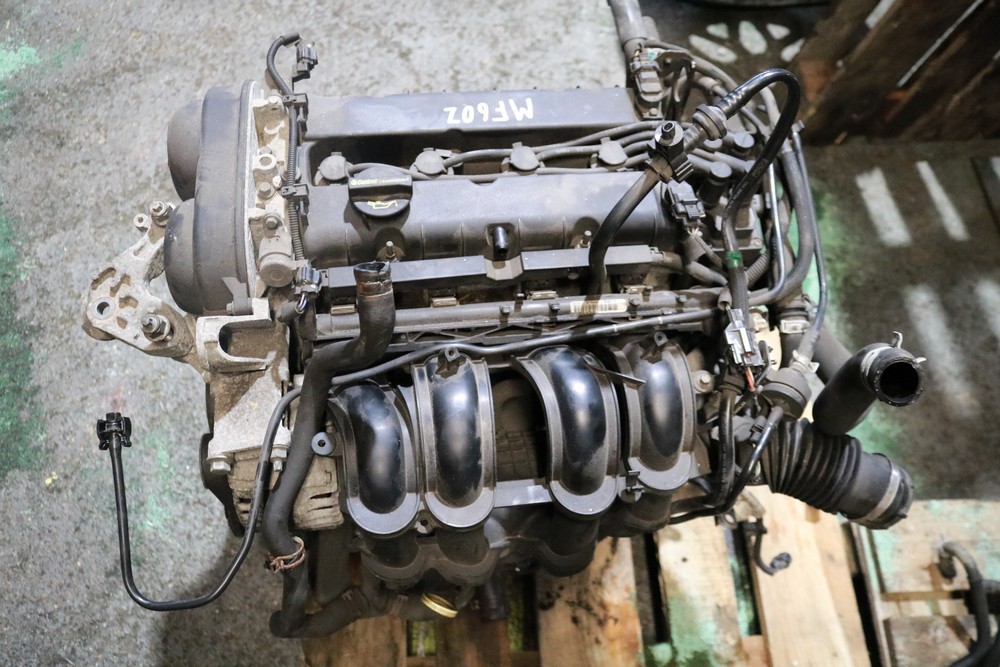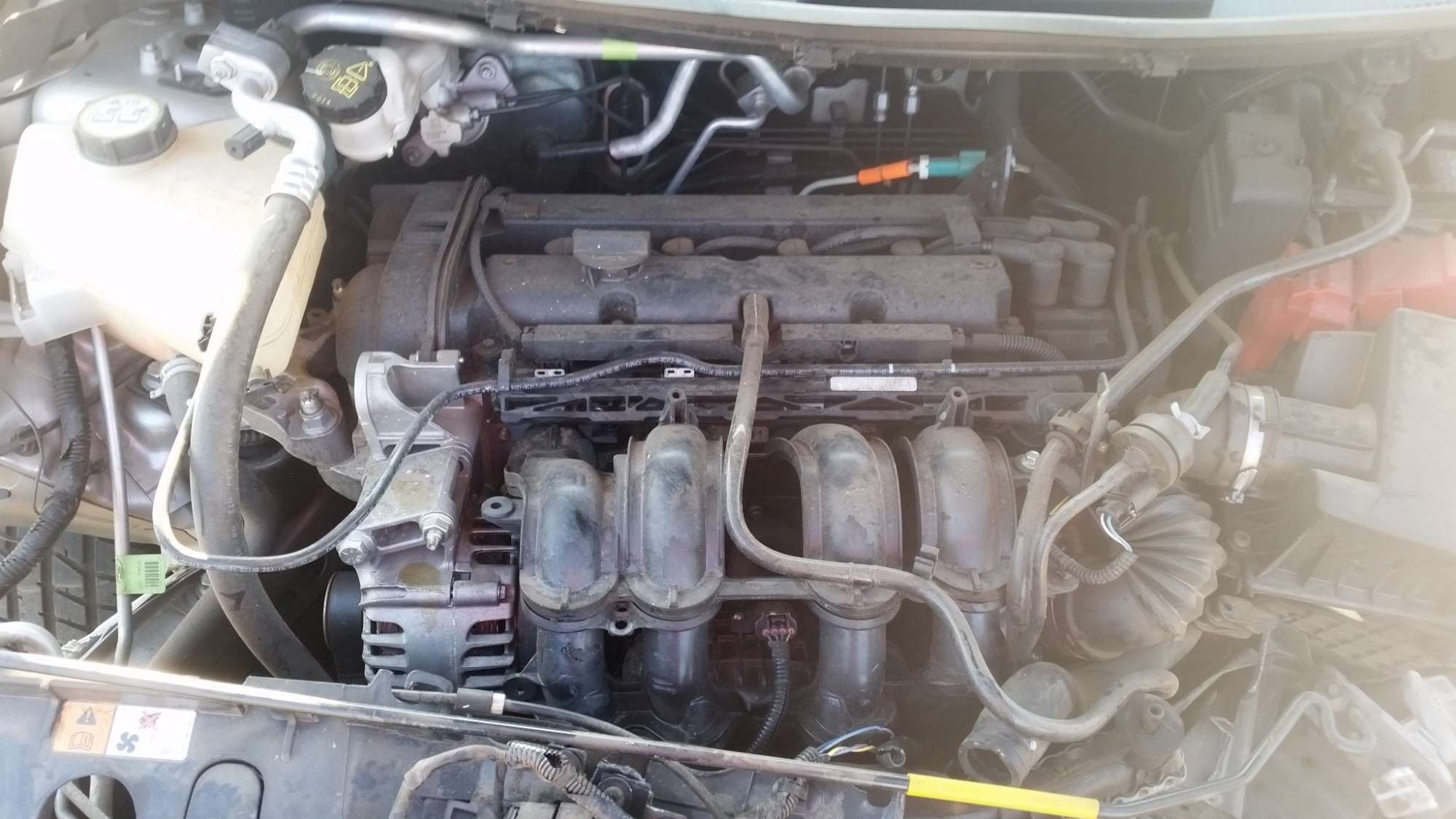Discover the Latest Ford Fiesta Engine Upgrades for Enhanced Power
Wiki Article
Opening the Power of Engines: A Comprehensive Overview to Performance and Performance
Recognizing the complex mechanics of engines is essential for both performance lovers and everyday chauffeurs. The answers might redefine our strategy to engine performance and efficiency in means that are both enlightening and necessary.Understanding Engine Fundamentals
What constitutes the basic mechanics of an engine? At its core, an engine is an equipment designed to transform fuel right into mechanical power via a series of controlled surges or combustion processes.The crankshaft then transforms this direct movement right into rotational energy, which eventually powers the automobile. The camshaft regulates the opening and closing of the shutoffs, managing the consumption of air and fuel and the expulsion of exhaust gases. Furthermore, the engine depends on a thoroughly adjusted fuel-air mix, ignition system, and cooling system to make sure ideal efficiency and efficiency.
Recognizing engine essentials also involves identifying the relevance of engine cycles, such as the four-stroke cycle, which consists of intake, power, exhaust, and compression strokes. Each stage is essential in guaranteeing the engine works smoothly and effectively. Proficiency of these basic technicians prepares for checking out a lot more intricate engine characteristics and efficiency metrics, important for maximizing both power outcome and effectiveness.
Trick Efficiency Metrics
Key performance metrics are vital for assessing an engine's performance and power output, providing important insights for both makers and customers. These metrics function as standards for engine performance, enabling notified choices in manufacturing, design, and buying.One of the main metrics is horse power, which quantifies the engine's ability to carry out job over time. Torque, gauged in pound-feet, is another vital statistics that shows the engine's rotational force, directly impacting acceleration and lugging capability. Gas effectiveness, usually gauged in miles per gallon (MPG) or liters per 100 kilometers (L/100km), evaluates how successfully the engine transforms fuel into movement, impacting functional costs and ecological considerations.
Furthermore, thermal performance procedures just how well an engine transforms gas energy into valuable job, disclosing insights into power losses mainly with heat. Emission degrees, consisting of carbon dioxide and NOx, are likewise essential, reflecting the engine's ecological effect and compliance with regulative requirements.

Tuning Strategies for Efficiency
Tuning strategies play a considerable duty in enhancing engine efficiency by maximizing efficiency metrics determined in earlier conversations (ford fiesta engine). Various techniques exist to adjust an engine, each contributing to improved gas economy and reduced exhaustsOne reliable strategy is adjusting the air-fuel proportion, ensuring the engine runs within the optimum combustion regime. A leaner blend can boost gas efficiency, but it should be balanced to prevent misfires or engine knock. Additionally, reprogramming the engine administration system can rectify criteria such as ignition timing, which further enhances effectiveness while maintaining power outcome.
An additional essential approach entails changing the consumption and exhaust systems. Updating to high-performance air filters and exhaust headers can decrease back visit our website stress, helping with far better air flow. This enables the engine to breathe more freely, causing enhanced combustion performance.
Furthermore, the execution of innovative adjusting tools, like dyno screening, gives specific information that makes it possible for targeted changes. Consistently monitoring these efficiency metrics guarantees that adjusting efforts produce the wanted efficiency results. Collectively, these methods not only strengthen engine efficiency but likewise add to long-term sustainability in engine operations.
Maintenance for Optimum Performance
Regular engine maintenance is important for achieving optimal efficiency and longevity. A properly maintained engine not just operates efficiently yet also reduces the danger of pricey fixings and failures. Secret components requiring routine focus include oil, filters, belts, and ignition system.Transforming the engine oil at advised periods is crucial, as oil lubricates moving components and stops overheating. Likewise, replacing oil and air filters ensures that contaminants do not harm engine function. Ignoring these elements can result in minimized efficiency and potential engine damage.
In addition, inspecting and changing used belts and tubes is vital to avoid abrupt failures. Timing belts, specifically, ought to be changed according to the maker's timetable to prevent catastrophic engine damage.
Ignition system need to also be examined and changed as essential, considering that they play an important role in ignition and gas performance.
Future Trends in Engine Innovation
Welcoming developments in modern technology, the future of engine layout is positioned to revolutionize efficiency and effectiveness across different applications. Crossbreed and totally electric powertrains are ending up being increasingly conventional, providing decreased exhausts and discover this info here improved fuel efficiency.In addition, technologies in materials scientific research are causing lighter, more powerful parts that improve engine performance while lowering energy intake. Advanced production techniques, such as 3D printing, allow for the production of complex geometries that improve air flow and thermal administration, therefore enhancing combustion processes.
Furthermore, the combination of expert system and artificial intelligence is set to change engine diagnostics and performance tuning. These modern technologies can evaluate large amounts of information in real time, enabling anticipating maintenance and tailored performance enhancements.
Verdict
In conclusion, opening the power of engines requires a detailed understanding of their mechanics and efficiency metrics. Applying efficient tuning methods and adhering to regular maintenance practices substantially boost engine abilities. As the automobile landscape advances, accepting future fads in modern technology, including electrification and advanced production, will be important for enhancing performance and performance. This extensive technique not only advantages enthusiasts yet likewise adds to lasting remedies in the world of automobile engineering.Furthermore, the engine relies on a meticulously calibrated fuel-air mixture, ignition system, and cooling system to make certain optimum efficiency and effectiveness.
Recognizing engine fundamentals likewise entails identifying the value of engine cycles, such as the four-stroke cycle, which consists see this website of consumption, power, exhaust, and compression strokes. Proficiency of these basic technicians lays the foundation for checking out more complicated engine characteristics and performance metrics, important for enhancing both power output and efficiency.

Welcoming innovations in innovation, the future of engine style is poised to transform performance and effectiveness across different applications.
Report this wiki page